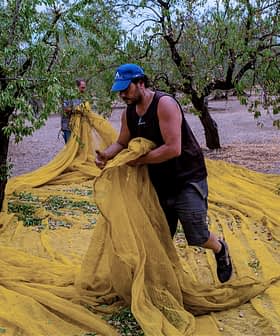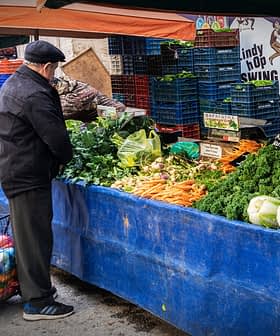Greeks Prepare for the Worst as Xylella Threat Looms
The late incidents in Spain cause anxiety in Greece, where no appearance of the pathogen has been recorded.
After the recent manifestation of Xylella fastidiosa at an estate with olive trees on the outskirts of Madrid that put Spanish authorities on alert, there was another incident in the country, this time in the south, where the bacterium was identified in a nursery of ornamental plants in Andalusia in mid-April. This was the fourth occurrence of Xylella in Spain, after the Balearic Islands, the Community of Valencia, and Madrid.
See Also:Xylella fastidiosa Articles and Updates
This last case was not rated as dangerous as the others since the plants were in a contained environment, but caution and prevention are always better than treatment. Andalusia is the biggest olive oil-producing region of Spain producing 930,000 tons this season, which translates to almost one-third of global olive oil production. One can only imagine what a disaster an outburst of Xylella fastidiosa in the area would mean.
Ironically, just in January, the local government of Andalusia announced that no Xylella case had been identified in the region and an action plan would be enriched with monitoring measures, along with the active prevention, surveillance, and eradication measures. All these actions would focus on farms, nurseries, and other places where plants are grown or sold in Andalusia and are prone to infection by the pathogen, like olive and citrus trees, vines, and almonds. Nonetheless, the measures proved to be short on blocking the entrance to the notorious tree killer.
Italy was the first major olive oil-making country in Europe hit by Xylella in the region of Puglia in 2013 and later in other areas where olive trees are being felled and burned in an attempt to contain the bacterium.
In Greece, where no Xylella case has been officially recorded, the latest incidents in Spain have set the alarm off for everyone involved.
In Larissa during a recent phytosanitary convention, scientists and agriculturists expressed their fears that the frequent imports of plants from Italy pose a significant danger, especially when the controls at the Greek borders are insufficient due to the lack of qualified personnel, while importers argued that controls oppose the rules of openness of trade in the European Union.
The scientists were skeptical of the alleged resistance to the bacterium olive tree that is attributed to some Italian varieties, and they advised the Greek growers not to rush and buy until all evaluation procedures are completed and the resistance of these varieties are verified.
As the EU has warned, the most common way of Xylella dispersion is by cicada vector insects that fly from one tree to another and carry the bacterium with them. As these insects are very common inside the entire Union territory, the risk of the pest spreading further is very high. And since the bacterium lives in the wood tissue, any trees or propagation material that are infected and transferred from one country to another can be the carrier of the pathogen.
In the meantime, the authorities of several olive oil-producing regions of Greece took precautionary measures to cope with a possible incident. In Rethymnon, Crete, the local Office of Agriculture and Veterinary (DAOK) called the farmers and growers to act according to the 2015/789/EU decision of the Union, that specifies that local authorities must be immediately informed to examine infected plants and, if the tests are positive, then the whole area must be demarcated at a width of at least 10 km around the problematic spot. Plants infected or showing symptoms of a disease caused by the pathogen must be removed.
In Valencia, farmers refused to uproot their infected almonds because the state had not specified the amount of compensation they would get, posing another challenge for authorities.
Greece is the only one of the three top olive oil producers in Europe and worldwide still unaffected by Xylella fastidiosa, but the danger looms near and constant vigilance is required to keep the pathogen out.








